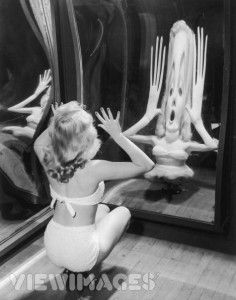Posted on February 19, 2011 at 11:00 pm
On Mirrors and Memories
Elie Wiesel asks: What came first—the event or the memory of the event?
 When it comes to the Egyptian “revolution” or any other current topic he is asked about, Elie Wiesel reverts to the one idea animating his life: the power of memory.
When it comes to the Egyptian “revolution” or any other current topic he is asked about, Elie Wiesel reverts to the one idea animating his life: the power of memory.
“Bearing witness is a huge commitment; it has almost nothing to do with machines. It is the eye that sees, the ear that listens.” Thus he responded to someone calling from the International Herald Tribune for comments about Egypt
The 82-year-old said, “Because of technology, and because of the progress made in technology, especially in the field of communication, no one has any excuse anymore to say, ‘I don’t know; I didn’t know; I wasn’t aware.”
Speaking of the real-time availability of news today: “Since they come from a variety of sources, from a variety of people, representing all ideologies and all sensitivities, we know. We cannot not know,” Mr. Wiesel said. “Whether you want it or not,” he added a moment later, “we are witnesses.”
Wiesel fears that, “In one way, what worries me is that there is so much chatter that we forget how to listen. Everybody has something to say. Before speaking, there is thinking. But today everything goes so fast, so fast.”
What the chatter should be asking of Egypt, he said, is: “What does it mean? Why did this happen now? Why didn’t this happen before? And not who is wrong, because we have to listen to both sides. But the main thing is, What does it mean in history, to history?”
The Internet can serve as a repository of testimony; but it can also be a palace of fun house mirrors, in which events are reflected and twisted and spun even before they have ended.
“There is no life without memory,” Mr. Wiesel said. “But when it’s too much, when it’s too much, then we no longer know, really, what came first, the event or the memory of the event.”
* * * *
Finally, an interesting idea. Just how tricky can memory be? Can we remember something before it happens? Or that didn’t happen? Elie Wiesel seems to think so. And he should know, because he’s done it. Yes, the Master of Memory says: When it’s too much, too much, then we might find ourselves in a “fun house of memories,” twisting and spinning, and getting just plain confused. It can happen. ~cy
If you’re sure you want to, you can read the original article at http://www.nytimes.com/2011/02/12/world/middleeast/12iht-currents12.html
Categories Featured | Tags:


Leave a Reply
By submitting a comment here you grant Elie Wiesel Cons the World a perpetual license to reproduce your words and name/web site in attribution. Inappropriate or irrelevant comments will be removed at an admin's discretion.